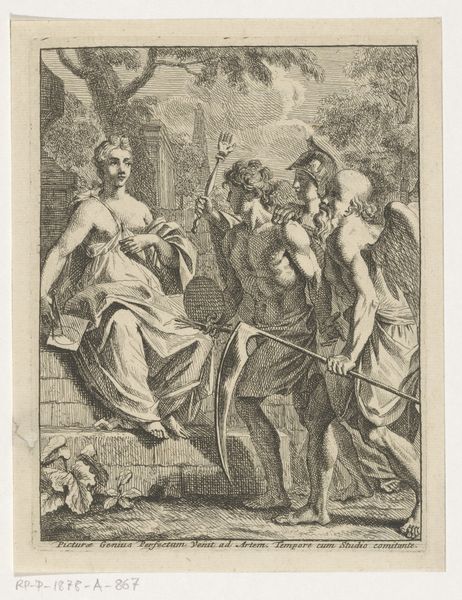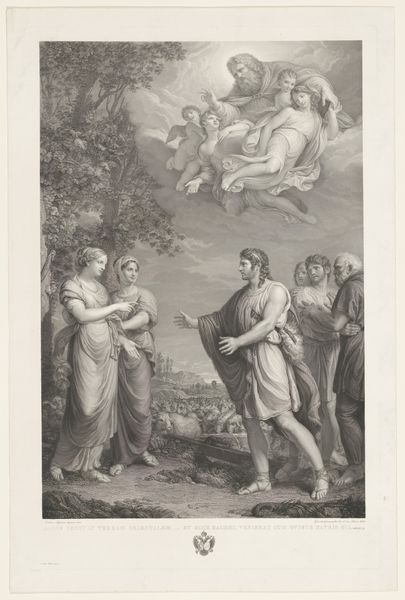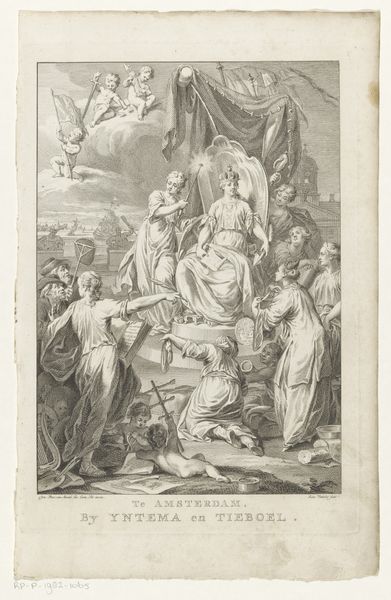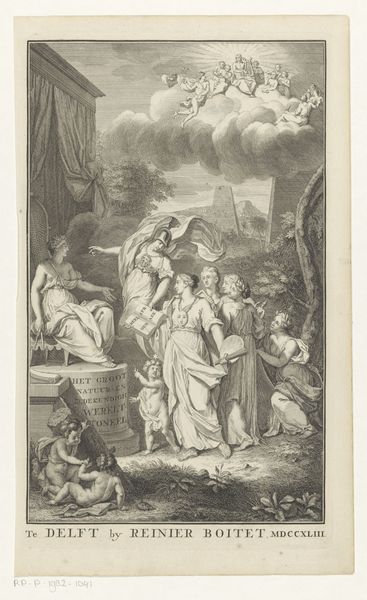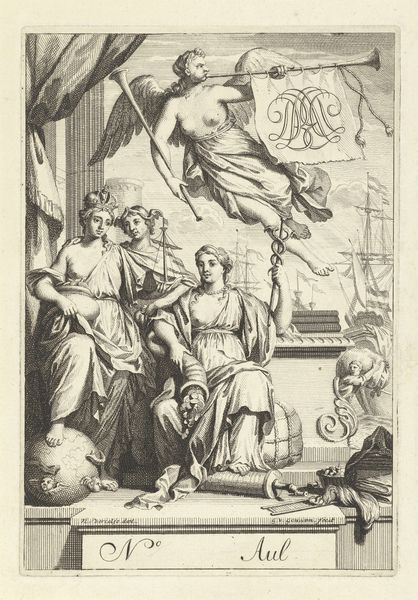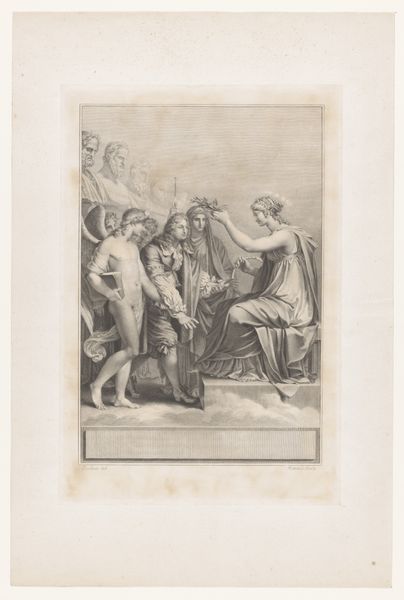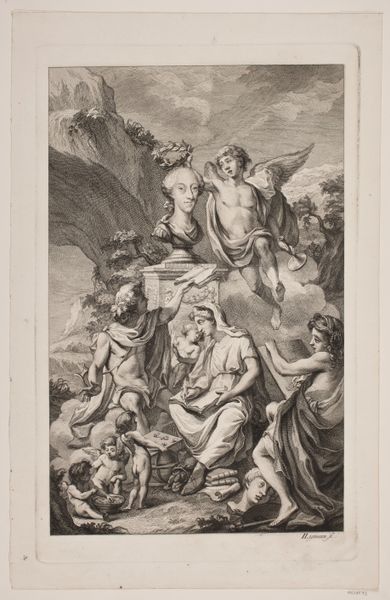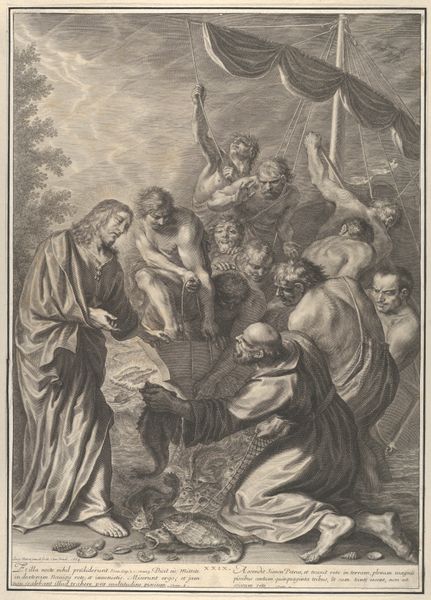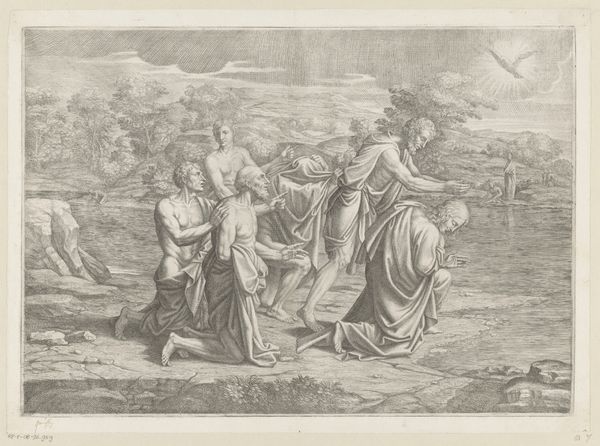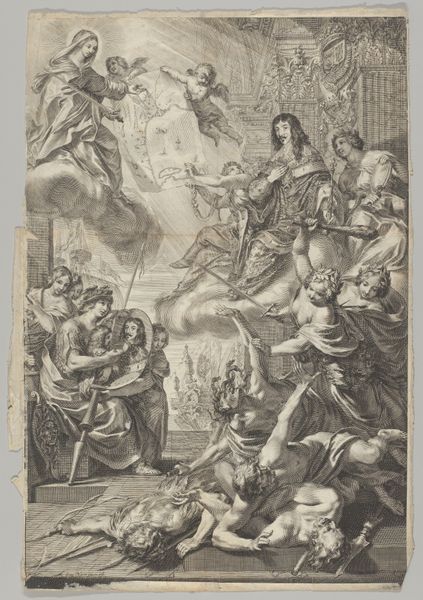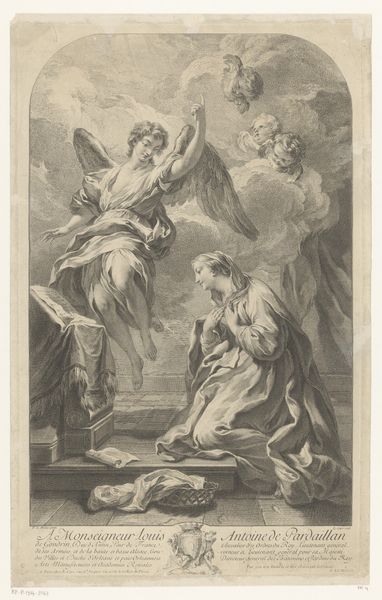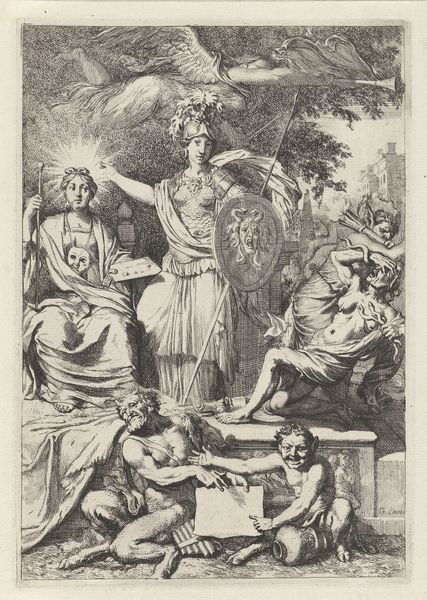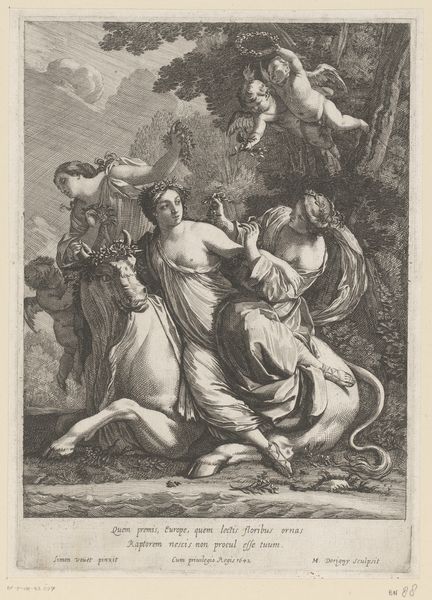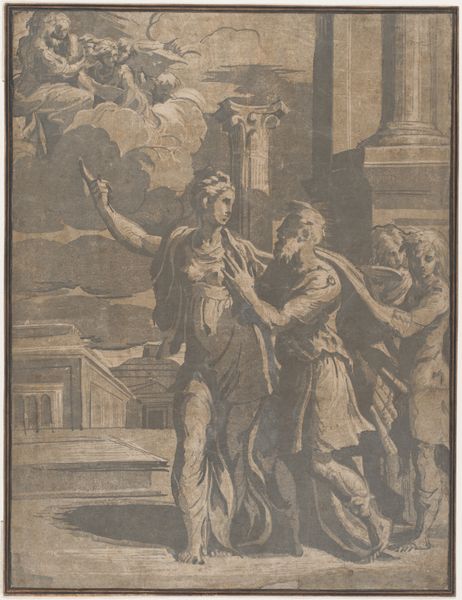
Cybele en Geografia naast een globe met personificaties van de vier werelddelen after 1706
0:00
0:00
laurensscherm
Rijksmuseum
print, engraving
#
allegory
#
baroque
# print
#
old engraving style
#
landscape
#
engraving
Dimensions: height 483 mm, width 292 mm
Copyright: Rijks Museum: Open Domain
This print, Cybele en Geografia, was made by Laurens Scherm around the turn of the 18th century, using etching and engraving. These are essentially linear media, calling on the artist to describe form with strokes and hatching. Looking closely, you can see how Scherm used these techniques to full effect. Notice, for example, how he contrasted the heavy, dark lines describing the lion at the lower left with the delicate cross-hatching used to model the faces of the figures. This allows him to convey the different textures of fur and skin. Note also the varying density of the lines that give weight to the drapery, and create a sense of depth across the entire composition. Prints like these were made in multiples, and were a mainstay of the early modern publishing industry. This one likely served as a frontispiece for an atlas. Seen in this light, Scherm’s detailed rendering can be understood not just as a display of technical prowess, but as an essential part of the era’s knowledge economy. By manipulating metal with care and precision, engravers like him contributed to the spread of information, and shaped the way people understood the world.
Comments
No comments
Be the first to comment and join the conversation on the ultimate creative platform.
